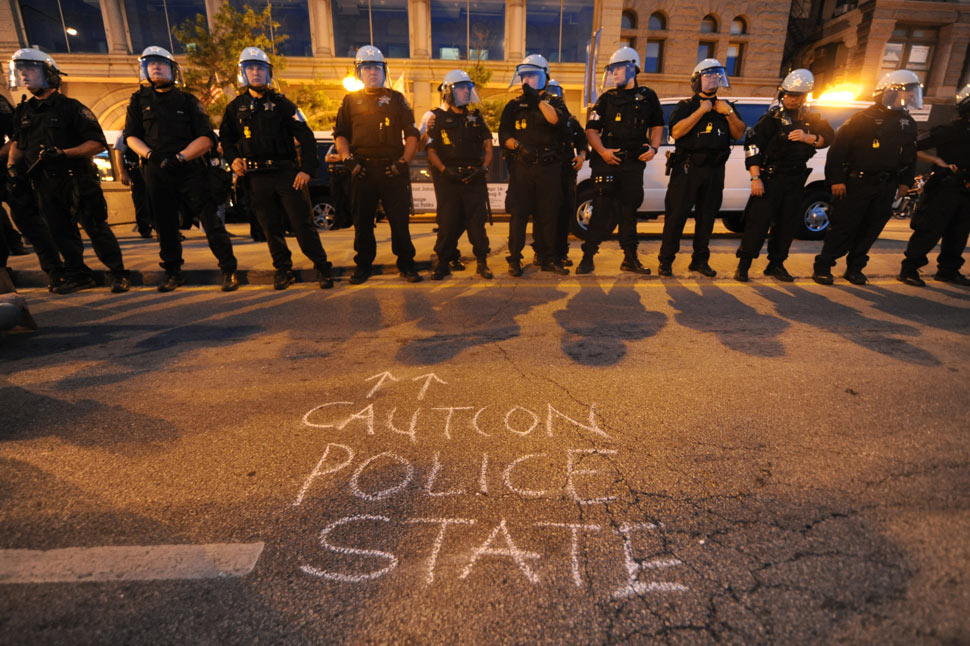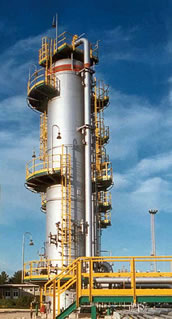Posts Tagged ‘Dallas’
Last Rig Standing: the Stakes for February 7th Dallas Vote
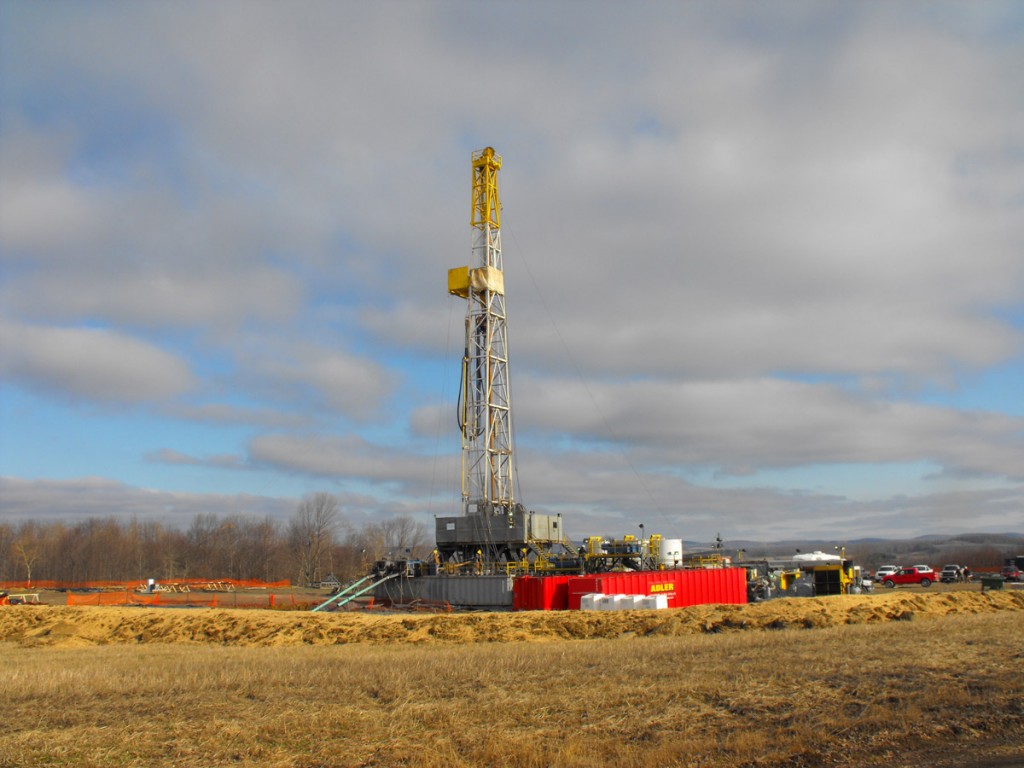 Today, DMN Dallas City Hall reporter Rudy Bush wrote that the Exxon-Mobile gas drilling subsidiary XTO has decided to permanently withdraw its requests for gas drilling permits in the city. Previously, the company had said it was "suspending" activity on the permits.
Today, DMN Dallas City Hall reporter Rudy Bush wrote that the Exxon-Mobile gas drilling subsidiary XTO has decided to permanently withdraw its requests for gas drilling permits in the city. Previously, the company had said it was "suspending" activity on the permits.
With its decision, XTO becomes the second out of three gas companies to withdraw from drilling leases that were first signed with the City of Dallas in 2007. Chief Oil had already pulled out, apparently complaining that it was too hard to get a permit approved in Dallas.
That leaves only the three sites being pursued by Trinity East as the very last ones left over from the Wild West days of gas leasing in Dallas – the same sites that have been the subject of so much controversy since the Mayor unilaterally decided to push them through after Thanksgiving.
To summarize, Dallas citizens have beat back all but three pre-2008 gas drilling permit requests in order to make sure any drilling done in the city is implemented under a new, more protective, and as yet, unwritten, gas drilling ordinance.
That's why the February 7th "re-do vote" on the Trinity East permits at the City Plan Commission is a decisive one. That's why we keep asking for your help in winning it. We get rid of these three sites and we've managed to avoid the mistakes of just about every city west of Dallas over the past decade. We draw a line in the Shale.
We are three sites and one February 7th vote away from starting with a clean slate. Three sites and one February 7th vote away from not having to worry about "grandfathered" gas facilities. Three sites and one February 7th vote away from keeping Dallas responsible in its drilling.
All that's standing in our way is Dallas City Hall.
In contrast to what seems like a kind of nonchalant attitude by Mayor Rawlings in the DMN article, we know for a fact that he and the City Manager are launching a full court press to make sure the Trinity East permits get approved, despite their locations, pollutants and impact on public health. If the Plan Commission railroad job earlier this month didn't convince you, please look at what kind of legal back flips the city attorneys are doing to cover-up how bad the permits are.
Over this last week we've seen the city change its definition of what a compressor station is in reaction to discovering that it had one hiding in the Trinity East Elm Fork permit. What just last year had required a special zoning district to be built now no longer does. Now, the compressor station and refinery that Trinity East wants to operate are all just part of the "normal well head production" that every pad site has. Honest, that's what Dallas City Hall is saying – that a refinery and compressor station are now part of everyday normal pad site operation. Every well head needs one! But Dallas City Hall also says it has no way to distinguish between normal production equipment and anything bigger, including a miniature Texas City on the Trinity.
This interpretation of the current regulations was simply proclaimed by lawyers, not passed as policy. It has no basis in engineering or science or existing regulation. There are facilities much smaller than the planned Trinity East Elm Fork plant that are regulated as "compressor stations" and "processing plants" by the Texas Commission on Environmental Quality. Dallas thinks it can downsize the pollution from these facilities just by changing what they call them.
That's how desperate they are to approve these Trinity East permits. It'd be laughable – if these things weren't being said by City of Dallas attorneys with straight faces in meetings with citizens.
It's about the process as much as the pollution now. City Hall is twisting the municipal machinery all out of shape in service to a single gas company. That's why we need you to come and stand with us on the 7th.
How Many Dallas Police Officers Does It Take To Approve An Illegitimate Gas Drilling Permit?
Thank You for Helping Us Show Some Green Muscle Last Thursday
 Regardless of what else might transpire on the way to resolving the Trinity East gas permits, there is now one unintended, but indisputable, result. The environmental movement in Dallas is growing up.
Regardless of what else might transpire on the way to resolving the Trinity East gas permits, there is now one unintended, but indisputable, result. The environmental movement in Dallas is growing up.
Almost 100 of you came out during the middle of a weekday and made sure your public comments were heard, even as the City of Dallas used police to try and stifle them.
Tired of the Banana Republic abuse of government, the Orwellian hypocrisy, and the bold-faced lies used to explain the raw political power plays, you used your own bodies and voices to say enough is enough. You made your own raw political power play. You dared to push back. You publicly shamed the City. Out loud. You were so rude you had to be asked to leave the premises. Imagine!
That wasn't very Dallas of you.
Or was it?
You may or may not know that the Civil Rights movement came late to Dallas, and then not as a part of any national campaign, but from the grassroots up. There's a reason the late Rev. Wright has a freeway named after him. It's because he, along with other members of the black establishment, kept MLK and the national movement from coming to town during the 1960's.
It was only after folks like Peter Johnson, Domingo Garcia, Al Libscomb, the Medranos, and Diane Ragsdale started raising hell, and started getting thrown out of the same City Council Chambers Dallas environmentalists were thrown out of last Thursday that progress came in the form of single-member council districts and city projects in minority neighborhoods. Closed off from the power structure and negotiated change, they didn't have anything to lose in engaging in confrontational tactics with the City. Indeed the city didn't take them seriously until they started doing so – and suing in federal court.
Very few out of the hundreds that came down to City Hall to protest were tossed out. But the hundreds that came supported those being tossed out. Because they knew they had to finally stand up for themselves.
Last Thursday's police escorts out of the City Council Chambers were only the latest in along line of such escorts for people who feel like they didn't have any choice left. But it was the first time environmentalists had been the escortees. It felt like the first time the they'd said "we're not going to take it anymore." Thanks for helping us show some muscle as a community. While we may have lost the actual reconsideration vote last Thursday, your actions made sure that we won the battle over public opinion. If you don't believe us, take a look:
Dallas Morning News : Amid Cries of Shame, Dallas Reconsiders Gas Permits
Channel 11: Protesters Oppose New Life for Drilling Fracking Project
Channel 5: Neighborhood Association President Callas City Un-democratic and Un-American
KERA: Dallas "Re-do" on Gas Drilling Permits OK'd
Last Thursday's outcry should spur more public acts of indignation, as well as a new focus on city politics. There are city council elections this May. There are pro-drilling incumbents running. There's a chance to send them a message that's even louder than the one chanted last Thursday: "You lost."
Thursday's vote means that the City Plan Commission will now "reconsider" it's December 20th rejection of the Trinity East gas permits at its Thursday, February 7th 1:30 meeting back at City Hall.
Citizens won that December vote 7-5 with two members absent. We lost the reconsideration vote 6-5 with three members absent. Two members who voted against the permits in December voted for reconsideration. Two members who voted for the permits in December voted against reconsideration because the politics were now so rank.
What does it mean? Anything could happen on the 7th.
A second rejection of the Trinity East gas permits by the Plan Commission would kill the Trinity East gas permits permanently because it would then take 12 Council members to override such a rejection and there are not 12 members willing to approve them.
An approval of the permits by the Plan Commission would give a green light to gas drilling in parks, flood plains and near schools, overrule its December rejection, and send the requests to the City Council, where it would only take 8 votes to approve them, not 12.
So – everything is at stake on the 7th. Please mark it on your calendar now. And yes, we'll be sending out reminders. Because this is where we're we're drawing a line in the sand. This is where the abuse stops. This is where we stand up for ourselves and say "enough is enough."
Where Were You?
 When the City of Dallas Decided
When the City of Dallas Decided
….to either let a vote stand, or steal it
….to defend air quality, or approve a new refinery that will be a top ten polluter
….to protect parks and floodplains, or make them industrial sites
….to listen to its residents, or a single gas company
The City Plan Commission Can Decide All These Things Today
Thursday 1:30 pm 6th Floor City Council Chambers
Dallas City Hall
1500 Marilla
Now is the Time for All Good Breathers to Come to the Aid of Our Air – And Your Rights
 Stand Up for the Right to Speak Out
Stand Up for the Right to Speak Out
The fight over gas drilling in Dallas is now as much a about the democratic process as it is about pollution:
– Public meetings scheduled five days before Christmas in hopes of lowering turnout
– Hiding a huge compressor station and gas processing plant that will be the 10th largest air polluter in Dallas inside a "drilling permit"
– And now, they want to steal a vote citizens won in December through "reconsideration" of that vote a tomorrow's Plan Commission meeting…without any opportunity for public comment.
But we assure you. There will be public comment.
Help us protect your rights as citizens and breathers
Join us Tomorrow
Because some things just need protesting
Thursday 1:30 pm
6th Floor City Council Chambers Dallas City Hall
And Today… you can send an instant e-mail to the Dallas City Council and the Dallas Plan Commission telling them you don't want them to "reconsider" the gas permits that were denied in December
Do this right now. Please. Thanks
Guess What? That “Drilling” Permit is Really for a Refinery
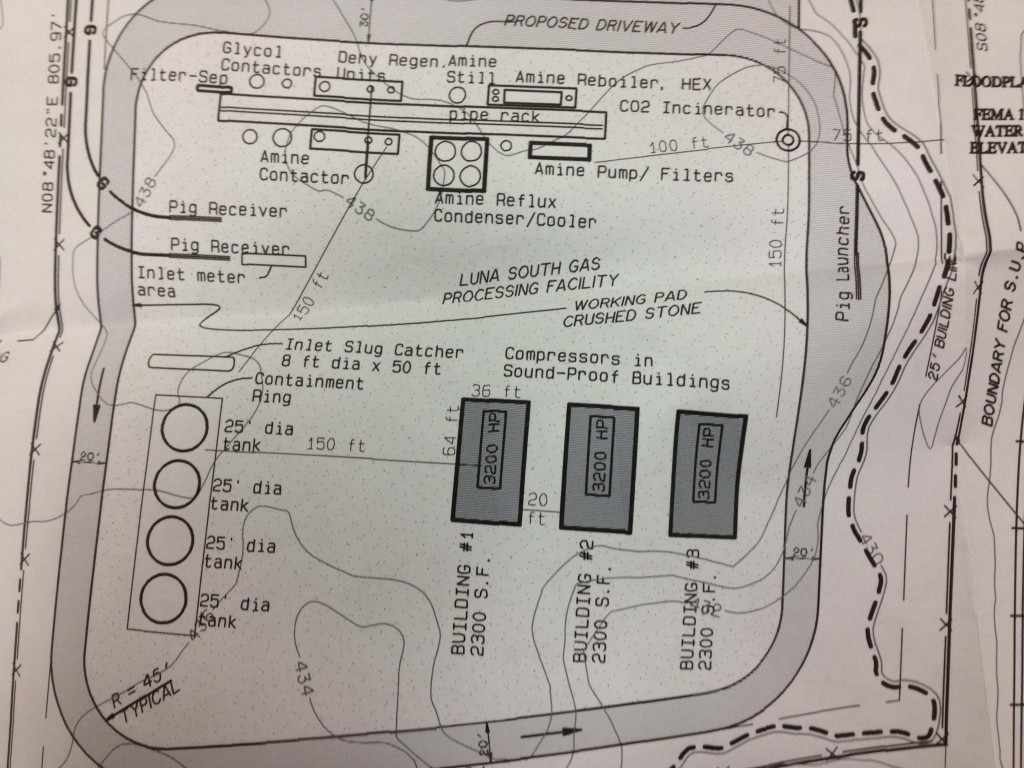 Under the guise of "gas drilling," Dallas City Hall and industry are pressing for approval of a permit that would locate a gas refinery only 600 feet from the new Elm Fork soccer complex, and immediately give birth to one of the ten largest air polluters in the City of Dallas, as well as one of its most toxic.
Under the guise of "gas drilling," Dallas City Hall and industry are pressing for approval of a permit that would locate a gas refinery only 600 feet from the new Elm Fork soccer complex, and immediately give birth to one of the ten largest air polluters in the City of Dallas, as well as one of its most toxic.
"There's a huge toxic Trojan Horse hiding in what the City and Trinity East describe as just a gas drilling permit," charged clean air activist Jim Schermbeck of Downwinders at Risk. "In fact, the Elm Fork permit allows for the building of a gas refinery that houses at least three giant compressors as well as an entire acid gas removal unit that strips off hydrogen sulfide, one of the most dangerous substances in the gas patch."
A motion to "reconsider" the Dallas City Plan Commission's 7-5 December 20th rejection of the Elm Fork permit and two other Trinity East gas sites is being advocated by CPC Chair and Mayoral appointee Joe Alcantar at this Thursday's meeting. If successful, the "reconsideration" would require the CPC to hold a second hearing and re-vote on the permits less than a month after denying them.
Opponents say the move is an act of desperation on the part of the Mayor and City Manager to protect a secret deal that was made between the City and Trinity East when the company first paid for mineral rights leases on city owned land. In interviews, the Mayor himself has said that a "deal was cut." Residents say the public was left out of that deal.
But after making calls to City Hall, Schermbeck is convinced that no one in Dallas city government is aware that the "gas drilling permit" being proposed by Trinity East is actually a permit to build a large gas refinery in the Trinity River floodplains.
"They're in way over their heads. City attorneys are still describing this as a drilling permit, but that's not what takes up most of the acreage on this site – it's all about the refinery."
During the December 20th City Plan Commission hearing on the permit, Trinity East representatives stated that the three proposed compressors alone – huge locomotive sized diesel-powered engines that produce thousands of horsepower in order to move gas through pipelines – would release 25 tons of air pollution each every year for an annual total of 75 tons.
That number would immediately place the facility among the city's ten largest air polluters according to the latest state emission totals from 2010. It would join power plants, asphalt and roofing materials manufacturers, and chemical plants as one of the city's biggest "stationary sources" of pollution.
However, Schermbeck thinks Trinity is low-balling their total air pollution impacts by not including other on-site refinery sources like its battery of storage tanks and "acid gas removal" operation that's designed to strip dangerous hydrogen sulfide off of natural gas streams through a series of acid baths and heat.
Hydrogen Sulfide is a harmful and toxic compound. It is a colorless, flammable gas that can be identified by its "rotten egg" odor. This invisible gas is heavier than air, travels easily along the ground, and builds up in low-lying, confined, and poorly ventilated areas. It acts as a chemical asphyxiant through inhalation exposure and its effects are similar to cyanide and carbon monoxide, which prevent the use of oxygen.
The equipment to strip off Hydrogen Sulfide from raw gas is large, complicated and dangerous. Site plans show a 200 foot long "pipe rack" with at least 20 "point sources" or stacks, apart from the compressors, where pollution could be released into the atmosphere.
"This isn’t a facility you want near parks or kids," said Schermbeck. "Yet, the City of Dallas seeks to put it just 600 feet away from its new huge soccer complex that’s meant to attract thousands of kids for hours every week."
Such a gas facility also challenges regional smog goals. A 2012 study from the Houston Advanced Research Center found that "routine emissions from a single gas compressor station can raise ozone levels by 3 parts per billion (ppb) as far as five miles downwind, and sometimes by 10 ppb or more as far as 10 miles downwind."
The Trinity East numbers don't reflect the release of greenhouse gas pollution either, which could be enormous from a facility the size of the refinery being proposed. Gas processing plants can release 20 to 80,000 tons of greenhouse gases a year. By comparison, the entire inventory of greenhouse pollution from all Dallas industrial sources in 2005 was 25,000 tons a year.
None of this information was brought up at the December 20th CPC hearing on the Elm Fork permit because the permit request in its current form was only a couple of weeks old when it went to the CPC and the compressors were a last-minute addition to an older, pending request.
Citizens were lucky to get a crowd to even show up five days prior to Christmas, and Schermbeck believes no one at Dallas City Hall bothered to notice that one of the so-called drilling permits was a refinery permit.
"Because it had no expertise of its own, and it was ignoring citizens, City Hall was completely reliant on the company's version of what the permit was for, and Trinity East probably didn't want to admit they were stuffing one kind of permit inside of another. The City didn't perform its due diligence. The result is that it's been completely played by the company."
Schermbeck recounted that he could find no one at City Hall who had any idea of how Trinity East arrived at their "25 tons a year" air pollution figure, knew what kind of specific pollutants that tonnage included, or, most importantly, thought it would be good to know this information before the city handed the company a permit to operate an inner-city gas refinery.
"Mayor Rawlings and the City Manager seem content to give Trinity East a blank check to pollute Dallas air," he said.
A closer look at the refinery site plans also reveals equipment that is fundamentally at odds with the way Trinity East and the gas industry has been portraying what kind of gas Dallas has underneath it.
Up to now, gas operators have been saying Dallas gas is "dry" and without a lot of extra hydrocarbons found in "wet gas" further west. But the acid gas removal units and Glycol conductors proposed for the Elm Fork refinery are built for wet gas.
Schermbeck suggests that perhaps either the City has been mislead about the nature of the gas it owns or the nature of the Trinity East site. He theorized that instead of the Dallas refinery being built for dry Dallas gas, it might be aimed at wet gas coming from the west.
"Dallas would get none of the royalties, but all of the pollution."
Mad? Go to this link now and send an e-mail to the Dallas City Council and City Plan Commission that says you oppose these gas permits and the "reconsideration" of their denial by the Commission:
https://www.downwindersatrisk.org/featured-citizen-action
Do it Now.
Another Win for Your Lake of Air
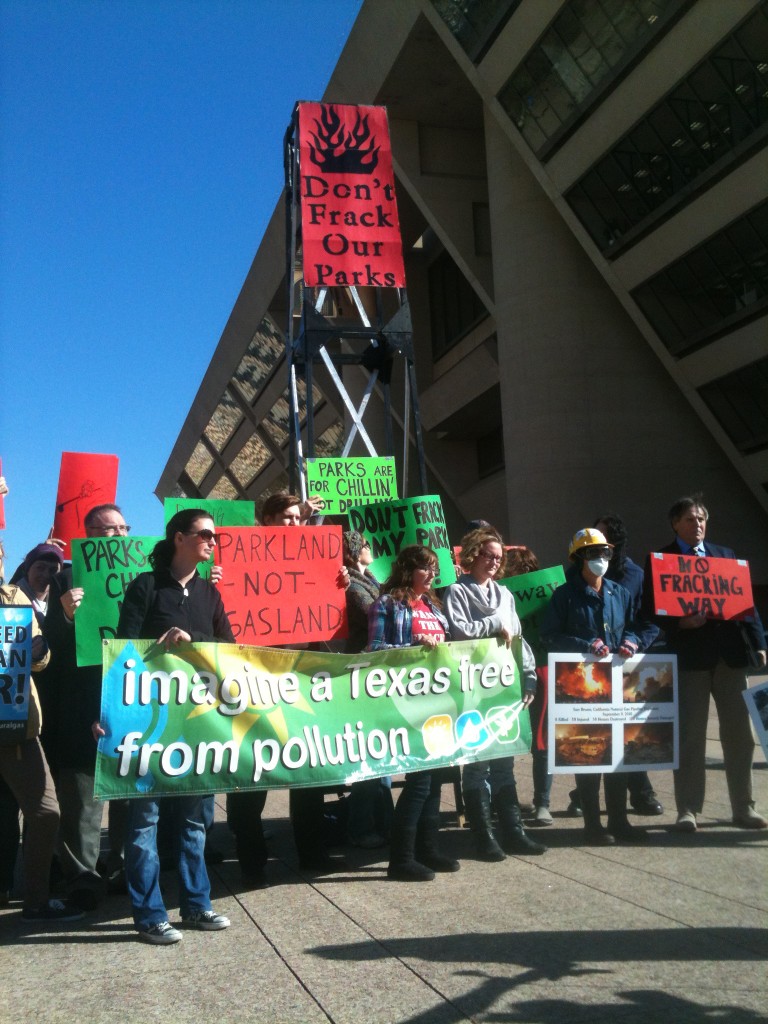 Late Thursday night Downwinders at Risk, as part of the Dallas Residents at Risk alliance, won a victory that citizens weren't supposed to win. Late Thursday night Downwinders at Risk, as part of the Dallas Residents at Risk alliance, won a victory that citizens weren't supposed to win.
Immediately after Thanksgiving, Dallas Mayor Mike Rawlings and City Manger Mary Suhm had plotted to speed the approval of the first gas drilling permit in Dallas. One left over from 2008 that would be exempt from the new drilling ordinance now in the works. One that included a compressor station and allowed for the drilling in city parks and flood plains. City Hall believed it had greased the tracks with threats of gas company lawsuits and given the City Plan Commission no choice but to approve the permit. Just to be sure, they scheduled the Plan Commission vote for December 20th, a time guaranteed to result in smaller crowds of opposition at City Hall. But something happened to make things go a little off-script. Responding to calls for help, enough Dallas residents showed up to articulately speak against the permit for more than an hour. They represented hundreds of neighborhood groups, the environmental community and public interest organizations like the League of Women Voters. If the raw numbers didn't match earlier attendance, the people that did show up represented real constituencies numbering in the thousands. When the vote was finally called at 7:30 pm Thursday evening, we won 7 to 5. The "grandfathered" gas drilling permit would not be approved by the Plan commission. To overturn this decision, the City Council must find 12 votes – a super majority – in favor of the permit at its mid-January meeting. This was not the result Dallas City Hall was counting on the Thursday night before Christmas. But thanks to supporters like you, it was the result that happened. Just as we mobilized opposition to Midlothian cement plant pollution, and helped organize Frisco residents to close down an obsolete and dangerous lead smelter, Downwinders is drawing a line in the Shale in Dallas and leading a push back against irresponsible urban drilling. And, against very long odds, we're winning….again. We do this to protect your lake of air. You ingest an average of 200 gallons of water every year, or about five bathtubs' worth. But you inhale approximately two million gallons of air every year – your own small lake of air.
In DFW, chances are your lake of air is going to have smog in it, along with some soot, some Sulfur Dioxide, Volatile Organic Compounds, as well as an assortment of other manufactured If your tap water was dirty brown and had lots of particles in it, you'd probably choose to drink bottled water. But when the air is dirty brown and has lots of particles in it, your lungs don't have a choice about the air they can use. Downwinders at Risk is here for one reason and one reason only: to defend your lake of air. Whether your air is threatened by smelters, gas rigs, cement plants or too-common smog, we're working to clean it up. For our efforts, Downwinders was proud to receive the first-ever GreenSource DFW award for Outstanding Grassroots Group in 2012. Looking ahead to 2013, your lake of air faces new threats, including worsening new permits by the Midlothian cement plants to burn large volumes of industrial garbage, and indiscriminate aerial spraying of pesticides by local governments. Downwinders at Risk will fight these threats with the combination of good science and citizen activism that's made us the foremost clean air group in DFW. But we need your help to do it. Our work depends on contributions from folks like you who appreciate what we do. Our annual budget is usually only around $30-50,000. We do all the work we do with an amount of money larger groups spend annually on office furniture or travel. We don't get money from a parent group in Washington or New York. Our board members are all from DFW. They're ordinary citizens like you, not rich patrons. Small donations make up a very large percentage of what we take in every year. We couldn't do what we do without you. In the time it took you to read this message, you've inhaled a couple of more gallons of air. Don't you think it should be clean air? You keep supporting us; we keep working for you – and surprising the opposition with victories that citizens in Texas just aren't supposed to be able to pull-off. That's our promise. Thanks for your consideration and Please click here to safely and securely donate online, or send checks to Downwinders at Risk, PO Box 763844, Dallas, TX 75376. Your donation is greatly appreciated and will be wisely spent. Thanks.
|
Red Alert for Dec 20th: Dallas Wants to Drill Like It’s 2009
 This is a heads-up to all Dallas residents: Dallas City Hall – the building, the people, everything – has climbed into a time machine and traveled all the way back to 2010.
This is a heads-up to all Dallas residents: Dallas City Hall – the building, the people, everything – has climbed into a time machine and traveled all the way back to 2010.
This has allowed the City council and staff to ignore citizen demands for a more protective gas drilling ordinance, the defeat of a council member who advocated drilling, the creation and conclusion of a task force for helping write a new ordinance, and a bunch of public hearings over the last two years – all so that Dallas City Hall can now just go ahead and do what the gas operators originally asked it to do at the beginning.
The first Special Use Permit request from a gas well operator to allow drilling in Dallas since 2010 will be on the agenda at the December 20th Dallas Plan Commission meeting at City Hall. It concerns a new request to drill by XTO (Exxon-Mobil) at the old Navel Air Station in southwest Dallas, near the Grand Prairie line, that was submitted on November 16th.
Time it's taken the City of Dallas to write a new drilling ordinance in Dallas: 24 months and counting
Time it took XTO to get its new drilling request heard despite not having that new ordinance yet: 20 days
You can read about the sudden jump into municipal action here behind the DMN paywall.
"XTO’s latest requests are apparently on a fast track, headed to the City Plan Commission….
A new, tougher Dallas drilling ordinance is in the works but has not been approved or even published for review, so the existing ordinance would govern the XTO applications, based on the city’s legal view that one set of rules should apply throughout the process."
Every Dallas City Council member appoints a representative to the City Plan Commission. Dallas residents should call their own City Council member (info here), or their Plan Commission appointee (download a list and contact info here) and tell them to reject this XTO request and any others that try to get processed before a new drilling ordinance is in place.
Here's the media release that Dallas Residents at Risk put out this morning about the sudden turn around:
Dallas Officials Consider Throwing Away Years of Work on New Gas Drilling Ordinance and Simply Let Fracking Begin
Have Mayor Rawlings and the Dallas City Council made a decision to move ahead with existing, pending and even new gas drilling applications without taking any action on the new “fracking” ordinance that has been in the works since 2010?
Two weeks ago, Exxon-owned gas company XTO filed a new gas drilling application—because their previous bid to drill at Hensley Field was denied by the Dallas City Plan Commission two years ago. Then the City Council appointed a special Gas Drilling Task Force, whose members met every week for eight months to consider proposals for a new ordinance. They finished their work in February of this year and issued their official recommendations, yet the City Council has not even begun drafting a new ordinance. The only rumored exception: City officials may consider simply changing the existing ordinance to allow fracking in floodplains, which would be necessary for gas company Trinity East to move ahead with its plans to drill in floodplain areas along the Trinity River. Neighborhood groups and environmental advocates say that’s unacceptable.
"This is the largest retreat of leadership that I can ever remember on such an important public health and environmental issue,” said Jim Schermbeck, Downwinders at Risk. “After three years of citizen complaints, a task force created, convened and concluded, expert and public testimony, and all Dallas residents get is a pair of shrugged shoulders from Mayor Rawlings and the Council? It's a bad joke."
There have been several major scientific studies surrounding the risks of fracking since Dallas officials began debating the new ordinance. Community leaders worry that new evidence pointing to health and safety risks for residents living near drilling sites will simply be ignored.
“So what if there's a 66% higher cancer risk within a half mile of a gas well; so what if already bad Dallas smog is made worse; so what if we still have no idea what chemicals will be used for fracking in Dallas,” said Claudia Meyer of the Mountain Creek Neighborhood Alliance. “It's as if the Mayor and Council are closing their eyes, plugging their ears, and desperately hoping to make all these new facts go away by just pretending they never happened.”
The new drilling applications leave Dallas officials exactly where they started, with the City Plan Commission being asked to shoulder the responsibility of deciding on whether to allow fracking to go forward. Advocates say the Commission should decline this offer and let the City Council do what it said it was going to do: Draft and pass a new gas drilling ordinance first.
“If we were only going to end up where we started, what was the point of a task force, or public hearings or anything that's happened since permitting stopped because the City wanted a new drilling ordinance,” said Zac Trahan with Texas Campaign for the Environment. “This is complete and utter dereliction of duty and public trust by the elected officials of this city on one of the most important public health and environmental questions to face Dallas in decades."

